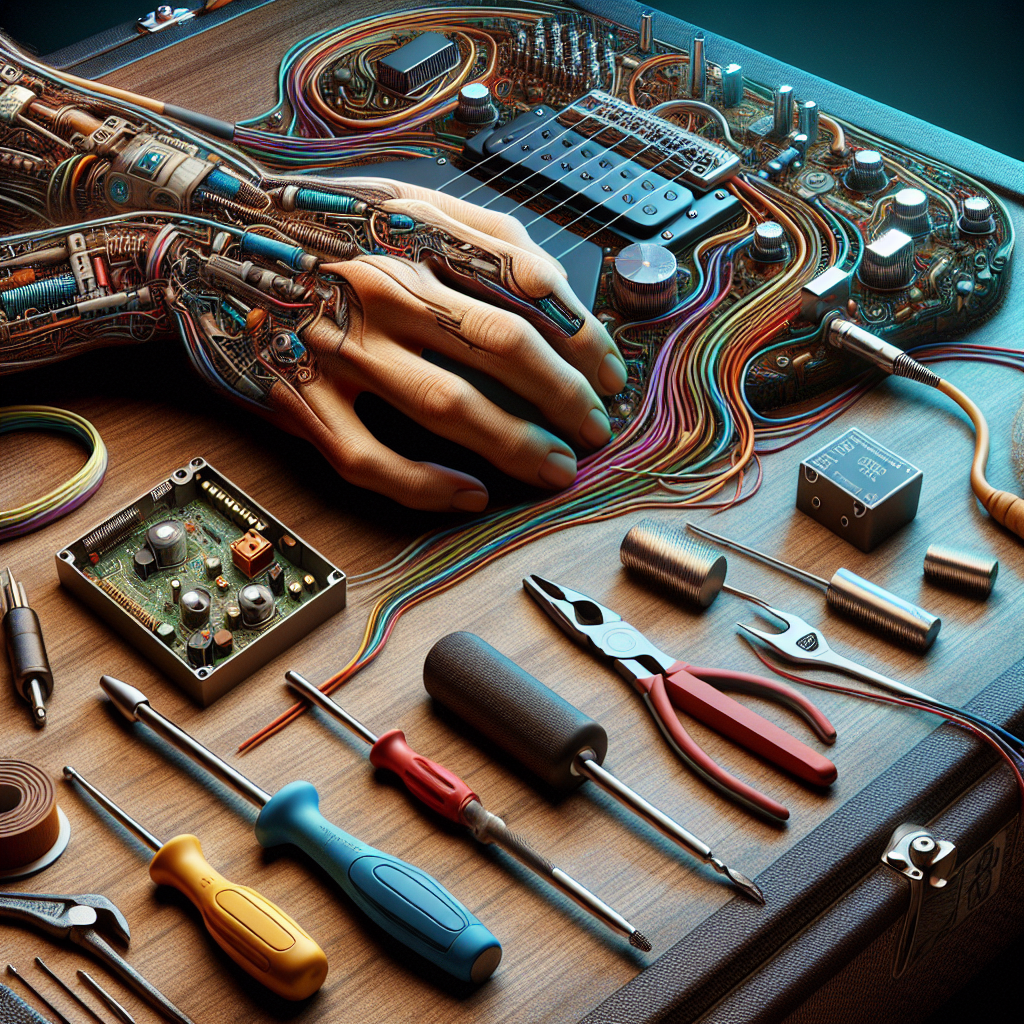
7 Reasons Why You Might Need a Treble Bleed for Your Guitar
Imagine strumming your electric guitar and noticing that as you turn down the volume, your high notes lose their magic. This phenomenon is where a little device called a treble bleed can come to the rescue. Treble bleed circuits have become a popular modification for guitarists eager to preserve tone clarity at lower volumes. Wondering if you need one? Let’s explore everything about treble bleed circuits and why they might be the missing piece in your musical puzzle.
What is a Treble Bleed?
In simple terms, a treble bleed is a circuit modification typically used in electric guitars to maintain the clarity of high notes when you lower the volume knob. Normally, when you turn down the volume on your guitar, it can lead to a loss of treble frequencies, making your sound feel muddy or dull. A treble bleed circuit combats this issue, allowing those bright, crisp sounds to remain intact.
Components of a Treble Bleed Circuit
Understanding the components of a treble bleed circuit can help you determine if it’s something you want to add to your guitar. The treble bleed circuit is usually composed of two key components:
- Capacitor: This part helps to pass the high frequencies even when the volume is reduced.
- Resistor: Often paired with the capacitor, the resistor smooths the transition of volume adjustment and prevents overly bright tones at lower volumes.
Each component can be adjusted; typical values are a 220pF to 680pF capacitor and a resistor anywhere from 100k ohms to 240k ohms.
How to Install a Treble Bleed
If you’re handy with a soldering iron, installing a treble bleed can be a straightforward process. You solder the capacitor and resistor in parallel or series (depending on the choice of circuit) between the input and output lugs of the volume pot. This tweak allows you to keep your guitar’s tone consistent as you dial down the volume.
For step-by-step installation guides, many credible sources, such as Seymour Duncan’s blog, offer detailed instructions to ensure your modification is successful.
Do You Need a Treble Bleed?
Whether or not you need one depends on your playing style and personal preference. Here are some reasons you might consider adding a treble bleed to your setup:
Advantages and Disadvantages
Pros:
- Maintains clear, crisp sounds at low levels.
- Easy and inexpensive to install.
- Helps adapt to diverse musical requirements.
Cons:
- May be overly bright if not tailored correctly.
- Alteration of original tone might not suit all styles.
- Requires some basic soldering skills.
FAQs
1. Can a treble bleed affect my amplifier settings?
No, a treble bleed affects only the guitar itself, keeping your tone brighter at lower volumes without changing amp settings.
2. Is a treble bleed useful for all types of guitars?
While it’s most common in electric guitars, a treble bleed can be used in any guitar type that experiences treble loss at low volumes.
3. Can I buy a pre-made treble bleed circuit?
Yes, many music stores and online retailers sell pre-assembled treble bleed circuits to simplify the installation process.
4. What if I don’t like the result of the modification?
You can easily revert your guitar to its original wiring by removing the treble bleed circuit if the added brightness isn’t to your liking.
5. Does a treble bleed affect high-volume playing?
No, a treble bleed is specifically designed to work when the volume is reduced; it has no effect at maximum volume.
6. Can a treble bleed be added to a bass guitar?
Yes, a treble bleed can be used on bass guitars, although bassists might find less noticeable benefits compared to regular guitars.
Conclusion
In the world of electric guitars, having a treble bleed circuit can be a game-changer for players who seek tonal consistency at all levels. This small modification can ensure your music shines with clarity, whether you’re rocking at full blast or practicing quietly. Remember, the choice to add a treble bleed is personal; consider your playing style, equipment, and desired sound quality. Experimentation can lead to discovering the ultimate sound that completes your musical experience!